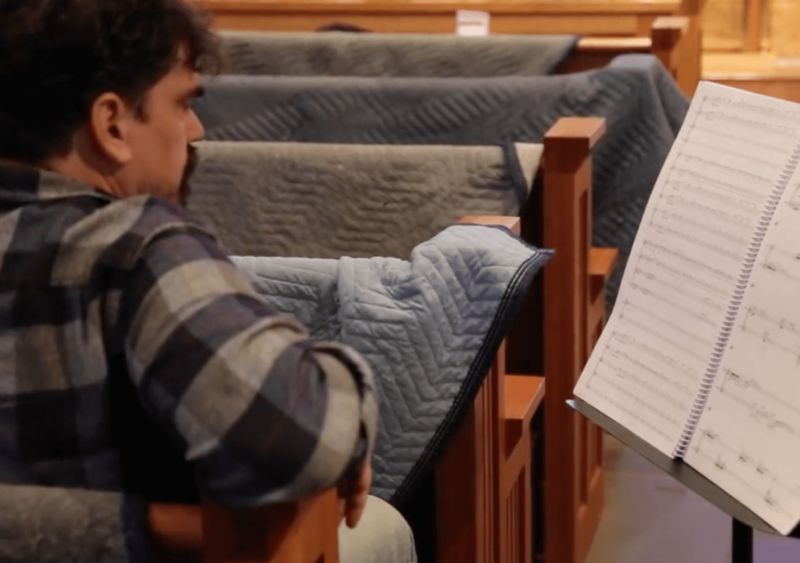
We continue our chat with American composer James Matheson ahead of the premiere of his Concerto for Two Shakuhachi “The Age of Air.” The work marks the River Oaks Chamber Orchestra’s 50th world premiere, a joint commission with Kyo-Shin-An Arts.
Q: Tell us a bit about the melodies and harmonies?
James Matheson: For me, the craft of composing always involves carefully balancing the consonant and the dissonant, the dense and the spare, activity and stillness and, perhaps, most importantly, the predictable and the unexpected. My first real musical idea for the piece was the beginning, in which the two soloists pass a quick figure back and forth in asymmetrical patterns and then slowly begins to descend.
The way the lines descend is closely related to the way musical sequences work in, for instance, music of the Baroque – but with some unexpected twists and turns.
But there was something missing – an important role for the orchestra, and a sense of propulsion forward, something that would really set this machine in motion with a sense of purpose.
Q: How did you fix that problem?
James Matheson: I added one bar — about two seconds — of an orchestral gesture that is literally the first thing you hear.
A: What effect did that have on the work?
James Matheson: Instantly there is a dichotomy set up that creates drama and momentum, and starts to raise some musical questions: What do these Japanese and Western instruments have to do with each other? Is this going to be a battle or a conversation? Or both? Can they play nicely together or is this just going to get weird?
And then the rest of the piece attempts to address these questions. And hopefully offers some beauty and excitement — and strangeness — along the way.
Q: How should an audience approach listening to a new work? Should they prepare and read program notes? Or should they just enjoy the ride?
James Matheson: Either way works, it really depends on the person.
The one thing I guess I’d have to say in this regard, though, is that program notes are words. Titles are words. Neither program notes nor titles should be taken too seriously. They are an invitation, an amuse-bouche.
The music itself is always something else entirely.
___
East meets West as ROCO performs “Pacific Crossings” on November 14, 2015, at The Church of St. John the Divine. Tickets are $35 general admission, $25 seniors, $15 students.

Leave A Reply